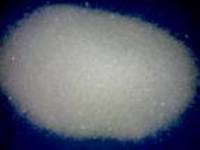SODIUM CITRATE DIHYDRATE
TRISODIUM CITRATE
Technical grade
Trisodium citrate, also known as sodium citrate dihydrate, is the sodium salt of citric acid with the chemical formula Na3C6H5O7. It is a white, crystalline powder with a slightly salty, sour taste. Trisodium citrate has a variety of applications in different industries due to its properties as a buffering agent, sequestrant, and emulsifying agent. Some of its uses include:
- Plaster retardant (see below)
- Pharmaceutical industry: Trisodium citrate is used as an anticoagulant in blood collection tubes, a buffering agent in various medications, and a urinary alkalizer to help treat certain kidney conditions. It can also be used as an osmotic laxative to relieve constipation.
-
Cosmetics and personal care: In cosmetics and personal care products, trisodium citrate is used as a buffering agent to maintain the pH of formulations and as a preservative to prevent microbial growth.
-
Cleaning products: Trisodium citrate is used in some cleaning products, particularly in eco-friendly and biodegradable formulations, due to its ability to soften water, remove soap scum, and dissolve scale deposits.
-
Laboratory applications: In the laboratory setting, trisodium citrate is commonly used as a buffer in molecular biology experiments, particularly in gel electrophoresis and DNA extraction procedures. It helps maintain a stable pH and protects samples from degradation.
Properties of Trisodium citrate:
Other names: Sodium citrate dihydrate; Trisodium citrate, trisodium salt of 2-hydroxy-1,2,3-propanetricarboxylic acid; trisodium salt of -hydroxy-tricarballylic acid; Natrocitral; Citrate sodique;
CAS No: 6132–04–3
EINECS No: 200–675–3
Empirical formula: C6H5Na3O7 . 2H2O
Molecular mass: 294.10 g/mol
Density: 1.7g/cm3
Appearance: colourless crystals or white, granular powder
pH: 8 – 8.7 at 50g/L at 25C
Melting point: >300 C
Solubility in water: 760 g/L (25C)
Easily soluble in hot water. Soluble in cold water. Insoluble in alcohol. Soluble in 1.3 parts water. Soluble in 0.6 parts boiling water.
Uses of Trisodium Citrate
In the cleaning industry trisodium citrate is commonly used because of its excellent cleaning characteristics and its unusual property of being almost neutral yet portraying the characteristics of an acid as in descalers and an alkali as in degreasers. Cleaning products include laundry powders and detergents, toilet cleaners, hard surface cleaners, carpet cleaners, dish washing liquids, powder and liquid degreasers and pre-soaks. It is becoming more and more popular now as it is considered environmentally friendly, it substitutes phosphates and is readily biodegradable.
In industry trisodium citrate finds many uses including alkaline degreaser baths, electroplating chemicals for copper and nickel etc, photo chemicals. It is also used in the paper and pulp industries and the textiles industry.
Using Trisodium citrate to retard plaster mixes.
Trisodium citrate, is sometimes used in plastering as a retarder or setting time regulator. Plaster is made by mixing gypsum powder with water, and then the mixture is applied to a surface where it hardens as it dries.
Trisodium citrate can be added to the water used to mix the plaster to slow down the setting time of the mixture. This can be useful in situations where more time is needed to work with the plaster or to apply it to a surface, as it prevents the plaster from setting too quickly.
The amount of Trisodium citrate required to slow down the setting time of plaster can vary depending on the specific application and the desired outcome. As a general guideline, a concentration of 0.2% to 0.5% of the weight of the gypsum in the plaster mixture is often used.
For example, if you are using 1 kilogram of gypsum powder to make your plaster mixture, you could add between 2 to 5 grams of Trisodium citrate to the water used to mix the plaster.
However, it's important to note that adding too much Trisodium citrate can weaken the strength of the plaster and affect its overall quality. So, it's recommended to start with a small amount and gradually increase the concentration until you achieve the desired setting time without compromising the strength of the plaster.
Health & Safety
Not a hazardous substance or mixture according to Regulation (EC) No. 1272/2008. This substance is not classified as dangerous according to Directive 67/548/EEC..
See MSDS for Trisodium citrate for full details in the documents section above.
PLEASE NOTE: This product is not for human or animal consumption.
